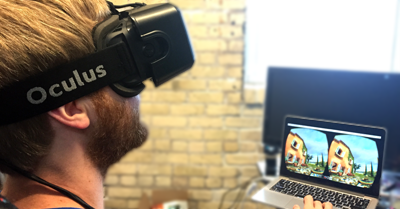Running Windows applications on Linux and Mac systems has come a long
way. I remember doing virtual machines, like QEMU, and VirtualBox,
running a guest in Vista or XP, and while it does run as expected, the
overhead costs of running a whole operating system in a VM environment
can be big (I still do use these programs, particularly VBox for
development purposes).
Around 2004-2007ish, I’ve was doing some application testings for a little program named WINE (I also have a friend, Tom Wickline, of Wine Reviews, who incidentally was the indirect reason why I created this blog in the first place (we did a review of PlayOnLinux in the past together, and it was so much fun, that I created this blog out of a whim). No, WINE is not a alcoholic drink, but instead it is rather a program that emulates different Windows APIs in linux and mac systems. It was also a challenge to compile for beginners too (I do not compile in mainstream linux OSes in the past but rather in smaller hobbyist type Linuxes like Alinux/PeanutLinux or PCLinuxOS). Real life happened though, so I had to give up this hobby.
The advantage of running WINE over Virtual Machine solutions is no overhead costs and the application runs at particularly native speeds. The disadvantage of running WINE is that not all programs run (Windows has a lot of APIs under the hood, and WINE doesn’t implement all of them).
In this particular article, I am running CrossOver 14.1.3 for Mac, on an early 2011 MacBook Pro (8,1) with 4GB of RAM and Intel HD 3000 Graphics (384MB Shared Memory Display).
Also for this particular experiment, I am installing a CodeWeavers supported application (Microsoft Office 2007), and two unsupported, but community supported applications (Mass Effect, and Tomb Raider 2013)
Before We Start
Before we start, let us see the levels of compatibility in these programs according to WINE compatibility levels:
Bronze – programs can install and run, with fundamental functionalities intact. However, the applications running have enough bugs that CodeWeavers advises running them with caution (save early and often).
Silver – programs can install and run well enough to be usable. There are however bugs that are found to let the program run flawlessly.
Gold – programs can install and run as you would expect if you are running Windows.
A further level of support for CodeWeavers is officially supported. That means if your application is in the list of officially supported applications, CodeWeavers is dedicated to bring up the level of compatibility higher (for example, supported bronze applications is expected to be brought up to silver level applications of CodeWeaver in future versions of CrossOver).
Microsoft Office (Officially Supported, Bronze)
Microsoft Office is an Office Suite of Word Processor, Spreadsheet, Presentation Software, among others. It is basically the proprietary equivalent of LibreOffice/OpenOffice. As such, CrossOver supports Microsoft Office officially.
Run Microsoft Windows Applications and Games on Mac, Linux or ChromeOS save up to 20% off CodeWeavers CrossOver+ today.
Around 2004-2007ish, I’ve was doing some application testings for a little program named WINE (I also have a friend, Tom Wickline, of Wine Reviews, who incidentally was the indirect reason why I created this blog in the first place (we did a review of PlayOnLinux in the past together, and it was so much fun, that I created this blog out of a whim). No, WINE is not a alcoholic drink, but instead it is rather a program that emulates different Windows APIs in linux and mac systems. It was also a challenge to compile for beginners too (I do not compile in mainstream linux OSes in the past but rather in smaller hobbyist type Linuxes like Alinux/PeanutLinux or PCLinuxOS). Real life happened though, so I had to give up this hobby.
The advantage of running WINE over Virtual Machine solutions is no overhead costs and the application runs at particularly native speeds. The disadvantage of running WINE is that not all programs run (Windows has a lot of APIs under the hood, and WINE doesn’t implement all of them).
In this particular article, I am running CrossOver 14.1.3 for Mac, on an early 2011 MacBook Pro (8,1) with 4GB of RAM and Intel HD 3000 Graphics (384MB Shared Memory Display).
Also for this particular experiment, I am installing a CodeWeavers supported application (Microsoft Office 2007), and two unsupported, but community supported applications (Mass Effect, and Tomb Raider 2013)
Before We Start
Before we start, let us see the levels of compatibility in these programs according to WINE compatibility levels:
Bronze – programs can install and run, with fundamental functionalities intact. However, the applications running have enough bugs that CodeWeavers advises running them with caution (save early and often).
Silver – programs can install and run well enough to be usable. There are however bugs that are found to let the program run flawlessly.
Gold – programs can install and run as you would expect if you are running Windows.
A further level of support for CodeWeavers is officially supported. That means if your application is in the list of officially supported applications, CodeWeavers is dedicated to bring up the level of compatibility higher (for example, supported bronze applications is expected to be brought up to silver level applications of CodeWeaver in future versions of CrossOver).
Microsoft Office (Officially Supported, Bronze)
Microsoft Office is an Office Suite of Word Processor, Spreadsheet, Presentation Software, among others. It is basically the proprietary equivalent of LibreOffice/OpenOffice. As such, CrossOver supports Microsoft Office officially.
Run Microsoft Windows Applications and Games on Mac, Linux or ChromeOS save up to 20% off CodeWeavers CrossOver+ today.
